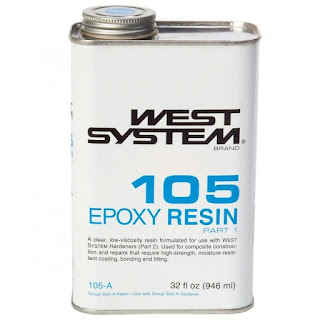Properties and Characteristics of Epoxy Resins
In the technical
textile industry composite and some textile material combining and scheduling
commonly used polyester resins, vinyl-ester resins and epoxy resins. Not like
other two types epoxy resins have specific characteristics and properties.
First one is chemical stability and it means after producing end product has
good resistant to the chemical impacts. This chemical stability comes due to
either linkage. Epoxy resins have high reaction according to the hydroxyl
groups and which helps to combine strongly with fiber and generate strong
composite complex. And another word I can say epoxy resins have excellent
adhesion to surface area. These polymers are very low electrical conductivity hence
suitable for industrial applications such as personal protective equipment. And
also epoxy resins have more co-polymers and they are helps to combine with most
of surfaces, fibers and make easily composites hence, ability to use with lot
of applications in the technical textiles industry. Epoxy resins are belonging
to thermosets according to the following epoxy ring structure.
And also according to
the chemical configure of epoxy resins have very good stiffness characteristics
and has good toughness. And also I above told epoxy resins have theromoset
property and it is affected to increase heat resistance properties. When we consider
another characteristics and advantages of epoxy resins can be explained as
above I told mechanical properties and its resistance or environmental
degradation which makes the resin system especially attractive and suitable for
the aircraft industry. And also another important property of epoxy resin we
can see the water resistance and in the marine industry commonly used epoxy
resins. Epoxy resins are easily reacting and set with other fibers and
molecules with 100C- 1500C temperature range and to obtain
best results need to be used proper curing agents.
Curing process can be
shown as below picture. And here hardener molecules have two reactive ends and,
they willing to react with two ends molecules of epoxy resins complex.
According to the
various properties and characteristics varieties of epoxy resins can be seen in
the technical textiles manufacturing and they are,
·
Epoxy novolac
·
Brominated epoxy resins
·
Cycloaliphatic epoxy resins
·
Diglycidyl ether of bisphenol A
·
Diglycidyl ether of bisphenol F
·
Multifunctional epoxy resins, etc
And also for hardeners
we can see in the industry following chemicals
·
Aromatic amines
·
Formulated anhydrides
·
Phenalkamaines
·
Cycloaliphatic
·
Boron trichloride with amines, etc.
When we compare epoxy
resins with polyester resins we can tell adhesion, shear strength, thermal
stability, electrical resistance, solvent resistance are higher than polyester
resins. As a summary I can finally explain that according to the various manners
epoxy resins are commonly applied to coating of paint and lacquer, aerospace
industry, personal protection equipments, automotive components, adhesives and
sealants, etc. The dulux paint is the best example for epoxy coating
application in the Sri Lanka.
